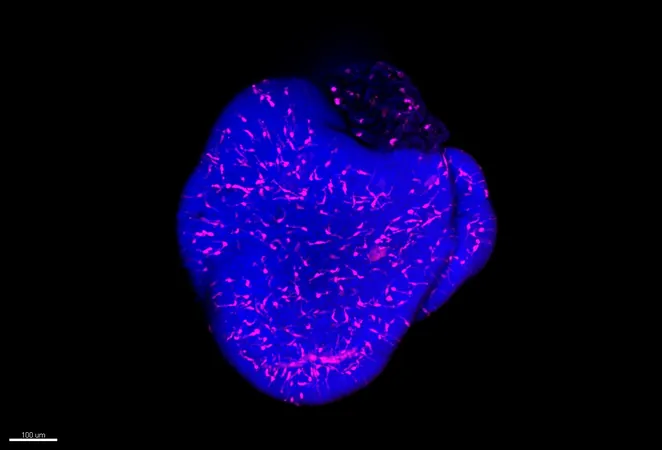
AI-Crafted Proteins: The Future of Antidotes Against Snake Venom
2025-03-24
Author: Rajesh
Recent breakthroughs in biotechnology have harnessed the power of artificial intelligence (AI) to design proteins capable of targeting toxins found in the venom of some of the world's deadliest snakes. This innovation could revolutionize treatments for snake venom poisoning, a health crisis that claims tens of thousands of lives every year, particularly in tropical regions.
Scientists have leveraged generative AI, a branch of artificial intelligence that generates data-driven models, to create proteins that specifically interact with the complex mixtures of toxins present in snake venom. Venoms contain a variety of harmful components, including enzymes and peptides that can cause paralysis or disrupt blood coagulation. Traditional antivenoms, which are created from animal antibodies, often come with limitations such as inconsistent efficacy and the potential for allergic reactions.
The newly designed proteins show promise in offering targeted treatment, which could lead to faster recovery times and fewer side effects. Researchers note that by narrowing the focus to specific toxin types, these proteins could be engineered for specific snake species, creating a database of targeted treatments tailored to various regional snakebites.
The implications of AI in this field extend beyond snake venom treatment. The same technology used to develop these proteins could have applications in various areas, including combating bacterial toxins, developing novel medications, and enhancing vaccine designs. As AI continues to redefine the boundaries of biological sciences, the potential for innovative solutions in healthcare expands exponentially.
In addition to enhancing antidotes for snake venom, this research emphasizes the shifting paradigm in drug discovery and development. By employing sophisticated machine-learning algorithms, researchers can simulate interactions between proteins and toxins at a molecular level, significantly accelerating the testing and validation phases of drug development.
As this field advances, the work being done to develop AI-designed proteins could herald a new era in treatment for various poisonings—marking a pivotal development in medicine that reflects our ongoing struggle against the world's most formidable toxins. The convergence of technology and biology not only promises improved health outcomes but also showcases the incredible capabilities of artificial intelligence in solving complex medical problems.
Stay tuned as we report on more breakthroughs in this exciting arena!



 Brasil (PT)
Brasil (PT)
 Canada (EN)
Canada (EN)
 Chile (ES)
Chile (ES)
 Česko (CS)
Česko (CS)
 대한민국 (KO)
대한민국 (KO)
 España (ES)
España (ES)
 France (FR)
France (FR)
 Hong Kong (EN)
Hong Kong (EN)
 Italia (IT)
Italia (IT)
 日本 (JA)
日本 (JA)
 Magyarország (HU)
Magyarország (HU)
 Norge (NO)
Norge (NO)
 Polska (PL)
Polska (PL)
 Schweiz (DE)
Schweiz (DE)
 Singapore (EN)
Singapore (EN)
 Sverige (SV)
Sverige (SV)
 Suomi (FI)
Suomi (FI)
 Türkiye (TR)
Türkiye (TR)
 الإمارات العربية المتحدة (AR)
الإمارات العربية المتحدة (AR)